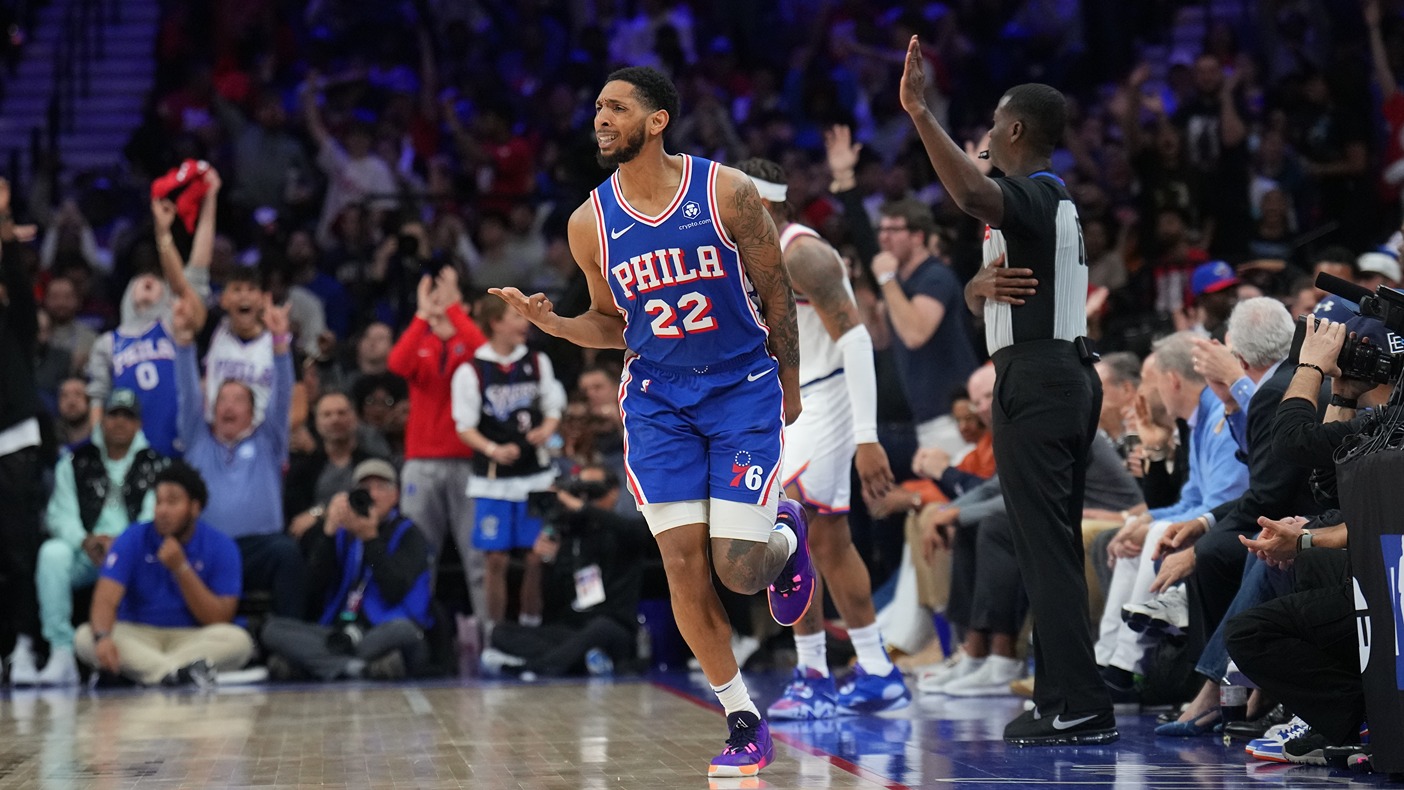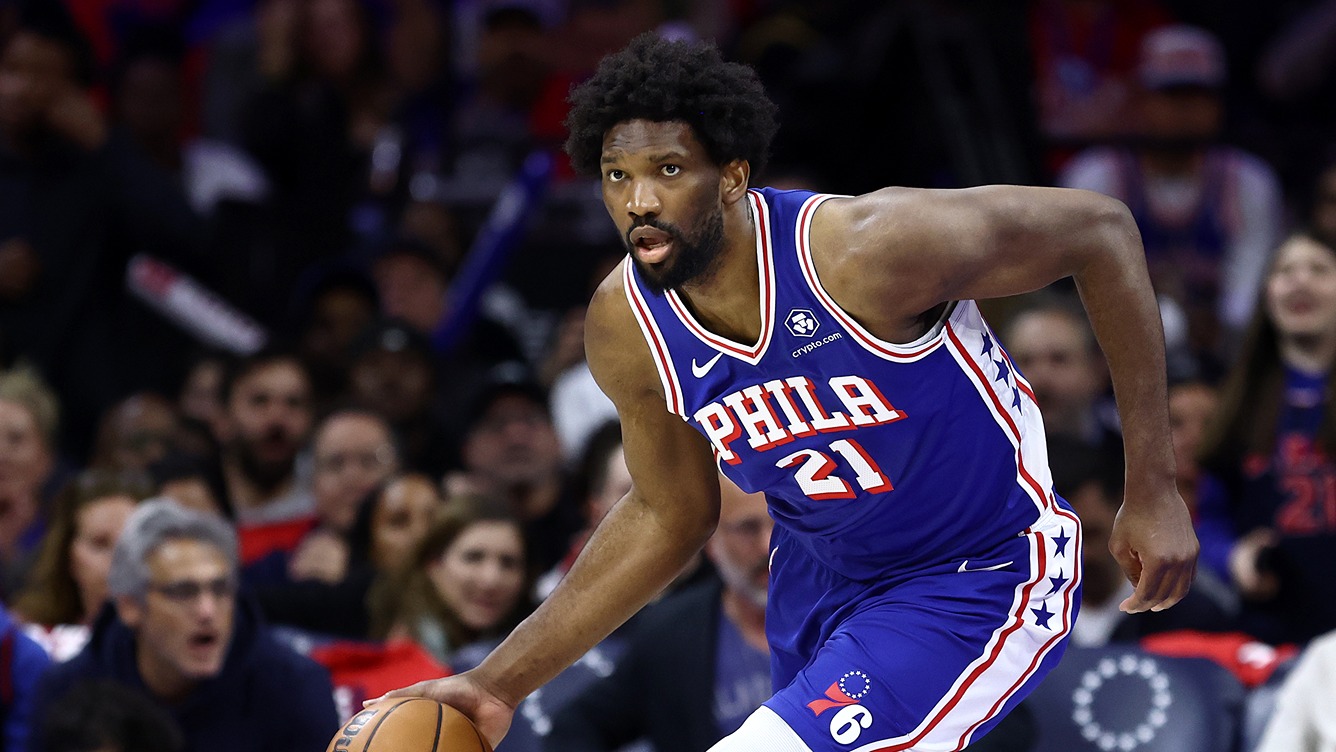3 observations after Simmons’ career-high night not enough without Embiid originally appeared on NBC Sports Philadelphia
Ben Simmons was extraordinary Monday night in Utah, appearing determined to guide the Sixers to a win over the Western Conference’s top team.
His task was made more difficult, however, by the absence of Joel Embiid, who was a late scratch because of back tightness. Despite Simmons' career-high 42 points (15 for 26 from the floor, 12 for 13 from the foul line), 12 assists and nine rebounds, the Sixers fell to the Jazz by a 134-123 score.
Get Philly local news, weather forecasts, sports and entertainment stories to your inbox. Sign up for NBC Philadelphia newsletters.
Tobias Harris was Simmons' main source of support offensively, scoring an impressive 36 points and grabbing 10 rebounds.
Jordan Clarkson bolstered his Sixth Man of the Year case by torching the Sixers for 40 points on 13-for-20 shooting.
The Sixers have lost three straight games but are still leading the Eastern Conference at 18-10. The team will fly back to Philadelphia and play the Rockets on Wednesday at Wells Fargo Center.
Philadelphia 76ers
Complete coverage of the Philadelphia 76ers and their rivals in the NBA from NBC Sports Philadelphia.
Here are observations on Monday’s game:
A different approach without Embiid
Though Embiid had been listed as questionable throughout the day, head coach Doc Rivers said pregame when asked about his status, “I didn’t know there was an issue. As far as I know, he’s going.”
Embiid was ruled out shortly before tip-off, though, the sixth game he’s sat out this season. Mike Scott started in his place and posted six points in 17 minutes, while Dwight Howard spelled Simmons at center and also played next to him at times. Tony Bradley, who’d started on Jan. 31 against the Pacers in the last game Embiid missed, wasn’t part of Rivers’ rotation.
Howard’s physical, high-energy game mostly worked well against the Jazz. He set hard screens, fought for offensive rebounds and gave the Sixers 26 solid minutes, recording 14 points and 12 rebounds.
Simmons excellent as Sixers go small
Simmons was guarded by two-time Defensive Player of the Year Rudy Gobert to begin the game and saw that matchup as an invitation to attack. He scored the Sixers’ first eight points, converting two driving layups, slamming home a put-back dunk and drawing two free throws.
Derrick Favors didn’t have any more success in his initial stint on Simmons, who made his first seven field goals and five three throws, scored 19 first-quarter points and looked dangerous and explosive against Utah’s much less speedy big men.
His teammates were clicking offensively from the jump, too, as Seth Curry opened 3 for 3 and Harris started 4 for 6. Though their defense was certainly not stingy, this was by far the best the Sixers have played when they’ve turned to small ball. While Simmons’ production was perhaps enhanced because Utah decided to primarily defend him with centers — a development future opponents will note — Monday night illustrates the appeal of using lineups without a traditional big man when Embiid is on the bench.
The Sixers’ offense was tailored to maximize Simmons’ talents as a driver, roll man and facilitator, and all of those abilities were evident in abundance.
Low three-point volume and a big bench disparity, again
The Sixers conceded a sizable edge to their opponent in bench scoring, not for the first time on this road trip. After Utah’s 57-25 second-unit advantage, the Sixers’ bench has been outscored by 87 points over the team’s last three games without Shake Milton (left ankle sprain). Rookie Isaiah Joe notably replaced the struggling Furkan Korkmaz in the rotation for three fourth-quarter minutes.
Another recurring problem for the Sixers was a low volume of three-point attempts. They shot 8 for 23 from behind the arc, compared to Utah’s 18 for 45 mark.
From the start of the season through their Jan. 14 win over the Heat, 35.7 percent of the Sixers’ field goal attempts were three-pointers. From Jan. 15 through before tip-off Monday night, that number dropped to just 26.0 percent, per Cleaning the Glass, lowest in the NBA during that stretch. The team’s last game with 30 or more three-point attempts was Jan. 14.
“It’s just ebbs and flows of the season,” Rivers said before the game. “Long season. I think, when our defense is really good, we tend to get more threes. When our defense is average, we tend to get less threes. A lot of our threes come in transition off of misses, so I would say that’s probably the reason.”
Indeed, the Sixers’ defense has not played well lately, and the Jazz limited open-floor opportunities by only turning the ball over 11 times and shooting 52.3 percent from the floor. The Sixers turned to a zone defense in the fourth period, the same strategy that had spurred their comeback win over the Pacers in their last game without Embiid, but it didn't have the desired impact.
The Sixers’ modest number of three-point tries is a trend worth tracking and considering ahead of the March 25 trade deadline. President of basketball operations Daryl Morey said at his introductory press conference he didn’t think it was necessary to replicate what he did with the Rockets, but it’s obviously uncharacteristic for one of his teams to shoot so little from three-point range relative to the rest of the NBA.
On a night when the Sixers scored 123 points against one of the league’s best defenses, though, offense wasn’t an issue.



